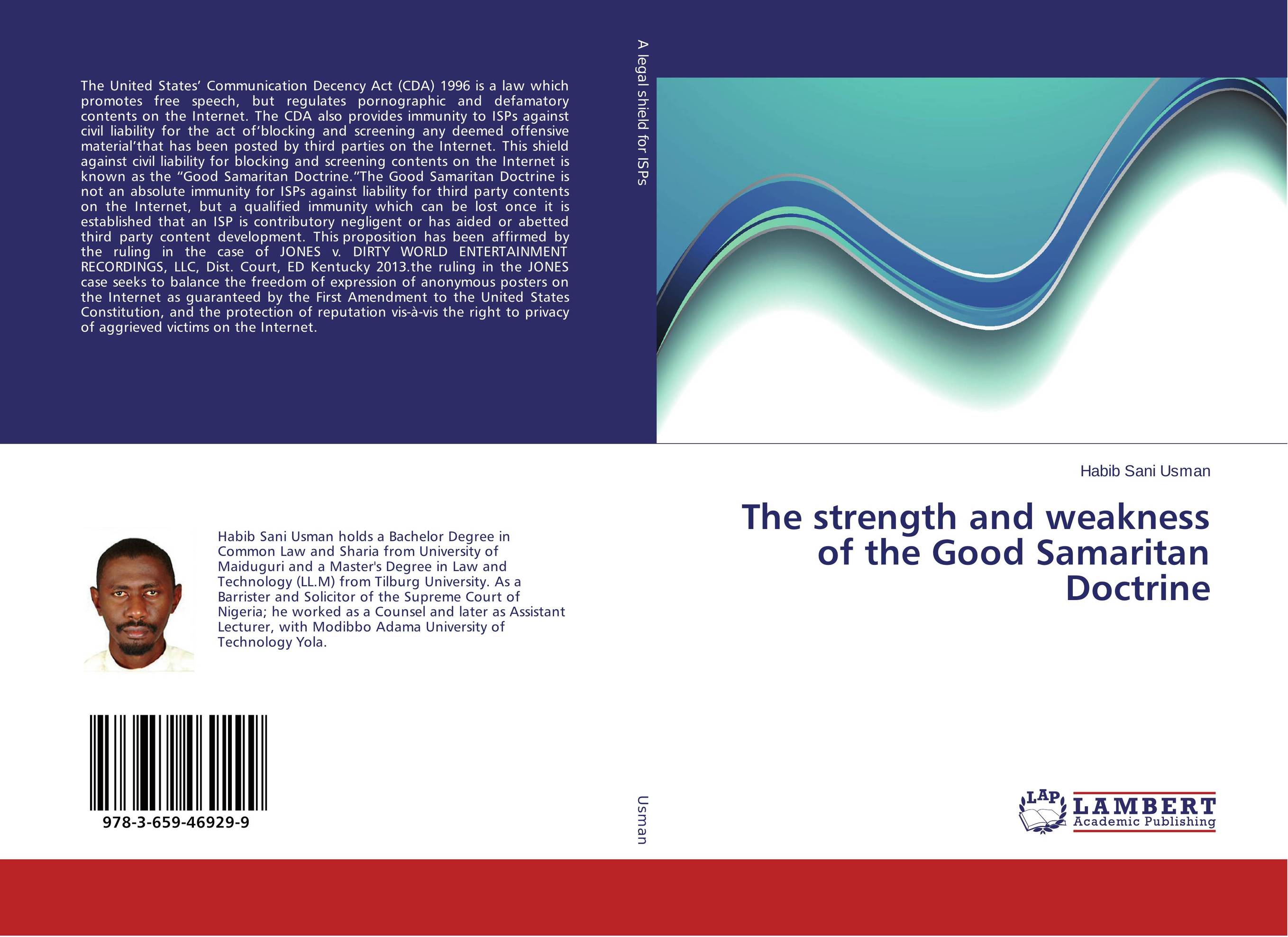| Поиск по каталогу |
|
(строгое соответствие)
|
- Профессиональная
- Научно-популярная
- Художественная
- Публицистика
- Детская
- Искусство
- Хобби, семья, дом
- Спорт
- Путеводители
- Блокноты, тетради, открытки
The strength and weakness of the Good Samaritan Doctrine.

В наличии
| Местонахождение: Алматы | Состояние экземпляра: новый |

Бумажная
версия
версия
Автор: Habib Sani Usman
ISBN: 9783659469299
Год издания: 2015
Формат книги: 60×90/16 (145×215 мм)
Количество страниц: 100
Издательство: LAP LAMBERT Academic Publishing
Цена: 31889 тг
Положить в корзину
| Способы доставки в город Алматы * комплектация (срок до отгрузки) не более 2 рабочих дней |
| Самовывоз из города Алматы (пункты самовывоза партнёра CDEK) |
| Курьерская доставка CDEK из города Москва |
| Доставка Почтой России из города Москва |
Аннотация: The United States’ Communication Decency Act (CDA) 1996 is a law which promotes free speech, but regulates pornographic and defamatory contents on the Internet. The CDA also provides immunity to ISPs against civil liability for the act of‘blocking and screening any deemed offensive material’that has been posted by third parties on the Internet. This shield against civil liability for blocking and screening contents on the Internet is known as the “Good Samaritan Doctrine.”The Good Samaritan Doctrine is not an absolute immunity for ISPs against liability for third party contents on the Internet, but a qualified immunity which can be lost once it is established that an ISP is contributory negligent or has aided or abetted third party content development. This proposition has been affirmed by the ruling in the case of JONES v. DIRTY WORLD ENTERTAINMENT RECORDINGS, LLC, Dist. Court, ED Kentucky 2013.the ruling in the JONES case seeks to balance the freedom of expression of anonymous posters on the Internet as guaranteed by the First Amendment to the United States Constitution, and the protection of reputation vis-?-vis the right to privacy of aggrieved victims on the Internet.
Ключевые слова: Law and Information, communication technology



